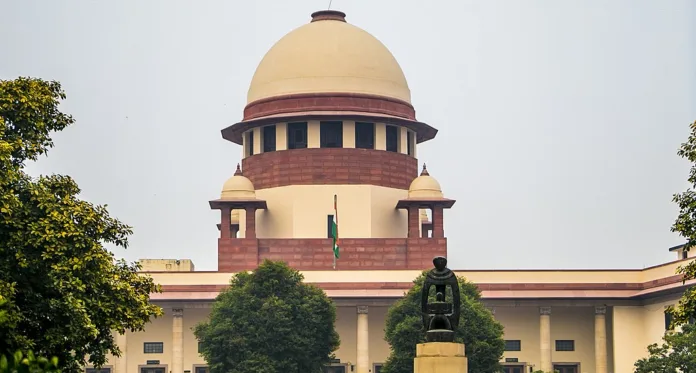The court emphasizes that no religion promotes pollution and urges stronger enforcement of the firecracker ban in Delhi to curb air pollution
The Supreme Court of India has strongly criticized authorities for failing to enforce the ban on firecrackers during Diwali in Delhi, highlighting that no religion encourages activities that pollute the environment. The Court’s remarks came while hearing a case regarding air pollution in the national capital, specifically examining the measures taken by Delhi and neighbouring states to reduce pollution during the festival season.
A bench consisting of Justices Abhay S Oka and Augustine George Masih observed that the right to live in a pollution-free environment is a fundamental right under Article 21 of the Indian Constitution. “Prima facie, no religion promotes any activity which promotes pollution or compromises the health of people,” the Court stated, urging authorities to take action.
The Court had previously questioned the Delhi government and the Delhi Police about the widespread violation of the firecracker ban during Diwali celebrations. Despite the ban being in place, firecrackers were widely used, causing a significant spike in pollution levels. The Court noted that while the Delhi government blamed the police for the enforcement failure, the police had not effectively communicated the ban to the public, including firecracker manufacturers, sellers, and stockists.
Embed from Getty ImagesIn response, the Court directed the Commissioner of Police, Delhi, to take immediate steps to ensure that the ban on firecrackers, which is in effect until January 1, 2025, is properly implemented. This includes setting up a Special Cell to monitor compliance and prevent the sale and manufacture of firecrackers. The Commissioner was also ordered to file a personal affidavit detailing the actions taken to enforce the ban.
Further, the Court questioned the Delhi government’s delay in imposing the ban, which was only officially announced on October 14, leaving some users with firecracker stock purchased in advance. The Court has demanded that the government make a decision on a perpetual firecracker ban by November 25, 2024, and consult relevant stakeholders before then.
On a broader note, the Court also addressed pollution from stubble burning in neighboring states like Punjab, Haryana, and Uttar Pradesh, urging them to take stronger action to curb the practice. The Court had previously directed the Union government to increase fines for stubble burning, which has led to improvements, although some farmers still claim they lack access to machinery needed to prevent the burning of crop residues.
The case highlights the ongoing struggle to address air pollution in Delhi and the broader northern region, with the Court continuing to press for urgent and effective measures to protect public health.
